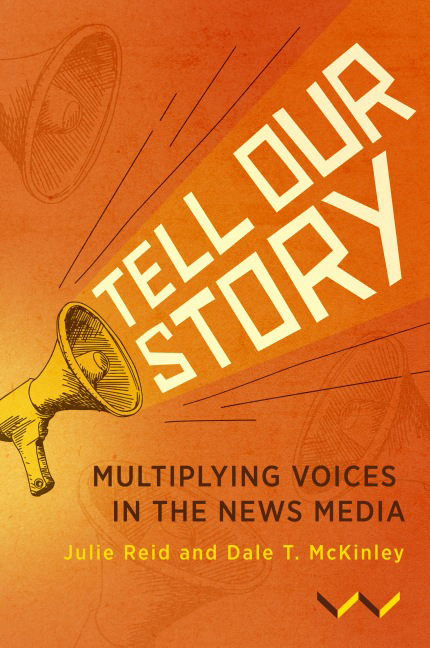Book contents
- Frontmatter
- Contents
- List of Figures
- Acknowledgements
- Abbreviations and Acronyms
- Chapter 1 The Importance of Voice and the Myth of the ‘Voiceless’
- PART 1 FROM THE INSIDE: VOICE(S) FROM THE GROUND
- Chapter 2 Community Perspective, Experience and Voice
- Chapter 3 Glebelands Hostel, Durban
- Chapter 4 Xolobeni, Eastern Cape
- Chapter 5 Thembelihle Community, Johannesburg
- PART 2 FROM THE OUTSIDE: DOMINANT VOICE
- Chapter 6 Dominant Media Telling and Elite Communication
- Chapter 7 The Political Economy of Dominant Power and Storytelling
- PART 3 NEW TRAJECTORIES FOR JOURNALISM AND VOICE(S)
- Chapter 8 Media Diversity and Voice(s)
- Chapter 9 Rethinking Media Freedom, Revamping Media Ethics
- Chapter 10 Planting the Seeds of Change
- Notes
- Bibliography
- Index
Chapter 3 - Glebelands Hostel, Durban
Published online by Cambridge University Press: 10 September 2020
- Frontmatter
- Contents
- List of Figures
- Acknowledgements
- Abbreviations and Acronyms
- Chapter 1 The Importance of Voice and the Myth of the ‘Voiceless’
- PART 1 FROM THE INSIDE: VOICE(S) FROM THE GROUND
- Chapter 2 Community Perspective, Experience and Voice
- Chapter 3 Glebelands Hostel, Durban
- Chapter 4 Xolobeni, Eastern Cape
- Chapter 5 Thembelihle Community, Johannesburg
- PART 2 FROM THE OUTSIDE: DOMINANT VOICE
- Chapter 6 Dominant Media Telling and Elite Communication
- Chapter 7 The Political Economy of Dominant Power and Storytelling
- PART 3 NEW TRAJECTORIES FOR JOURNALISM AND VOICE(S)
- Chapter 8 Media Diversity and Voice(s)
- Chapter 9 Rethinking Media Freedom, Revamping Media Ethics
- Chapter 10 Planting the Seeds of Change
- Notes
- Bibliography
- Index
Summary
An integral part of the backbone of the apartheid migrant labour and influx control system was the establishment of single-sex hostels in the main urban centres of South Africa. Such hostels were essentially worker dormitories, often multi-storey and made up of small rooms (with common ablution areas), each of which usually housed many individuals. Like so many others around the country, the Glebelands hostel complex, located next to South Durban's Umlazi township, became the home of male workers who were brought in from the rural areas to fill mostly low-skilled and low-paying jobs in manufacturing and heavy industries (Zulu 1993).
From the beginning, the entire hostel system provided fertile ground for individual and collective, as well as ethno-political, conflict. The main means of someone getting a room in a hostel tended to be largely ‘through personal contacts, or via companies’, which ‘contributed to the formation of homeboy [regional] cliques among residents in hostels’. The long-term result was that hostel social life tended to be ‘organised around regional or ethnocentric arrangements’ (Zulu 1993: 4). Initially run and managed by provincial authorities, the Glebelands hostel, similar to all others in Durban, has been administered by the eThekwini Municipality since the late 1990s.
On the political side, the hostel (historically an African National Congress [ANC] stronghold) saw intense conflict between the ANC and the Inkatha Freedom Party (IFP) during the early 1990s. The first official recording of a political killing was the gunning down of Dome Wellington Ngobese, the chairperson of the IFP branch at the hostel, in July 1992 (SAHA 1992). In the late 1990s, there was a shift to intra-ANC conflict when ‘dozens of residents were murdered’, followed by a lengthy period largely free from political violence until 2008 ‘when there were attacks on, and evictions of, people who joined COPE [Congress of the People]’ (De Haas 2016).
As will be told in much more personal and direct detail below by the interviewees, the last five years have been a period of unrelenting violence and conflict, warlordism, and ethnicised and factionalised party politics, which have seen more than 100 residents being killed. All this has been accompanied by a seemingly never-ending cycle of mismanagement, corruption and criminality emanating from local government and the police.
- Type
- Chapter
- Information
- Tell Our StoryMultiplying Voices in the News Media, pp. 39 - 58Publisher: Wits University PressPrint publication year: 2020



